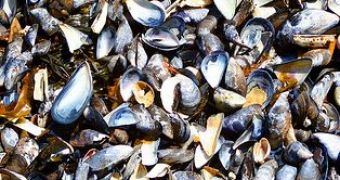Climate change along the east coast of the United States, has severely reduced the geographic region where blue mussels can survive, found a new research carried out by University of South Carolina researchers and published in the Journal of Biogeography.
Because of the increase in water and air temperatures along the east coast of the US, the Mytilus edulis, or blue mussels that used to live as far south as Cape Hatteras, North Carolina, now exist only as far south as Lewes, Delaware.
Sierra Jones, a PhD student in the Department of Biological Sciences at University of Southern California, studied the shrinking of this popular seafood's environment along with the impact that this is starting to have on the food chain and on the marine ecosystem.
Generally, plants and animals live in geographic areas defined by northern and southern limits, and in most cases, these boundaries are controlled by temperature.
Jones and colleagues analyzed over 300 miles of coastline and noted the way that survival of mussels has changed across latitude and decades depending on temperature, relates Alpha Galileo.
The findings show that sixty years ago, these blue mussels lived as far south as North Carolina, but because of the air and water temperature rise, they have difficulties surviving south of Lewes, Delaware, and northern populations have increasing mortality rates.
This research is rather important as it shows than climate change affects living organisms on the planet relatively fast and even if this particular study focuses on mussels, in the not-so-far-away future the limitation of inhabitable areas might apply to humans too.
Jones said that “these mussels are a very important part of the food chain, help clean the water, and are farmed commercially [and] if temperatures continue to increase, we can expect range changes of species like blue mussels to continue, and the health of our oceans is at risk.
“Understanding the link between organism and environment is essential for making predictions of how future climate change will affect species and ecosystems; where organisms might be in the future is crucial to planning for marine reserves and the future of the fishing and aquaculture industries.”

 14 DAY TRIAL //
14 DAY TRIAL //